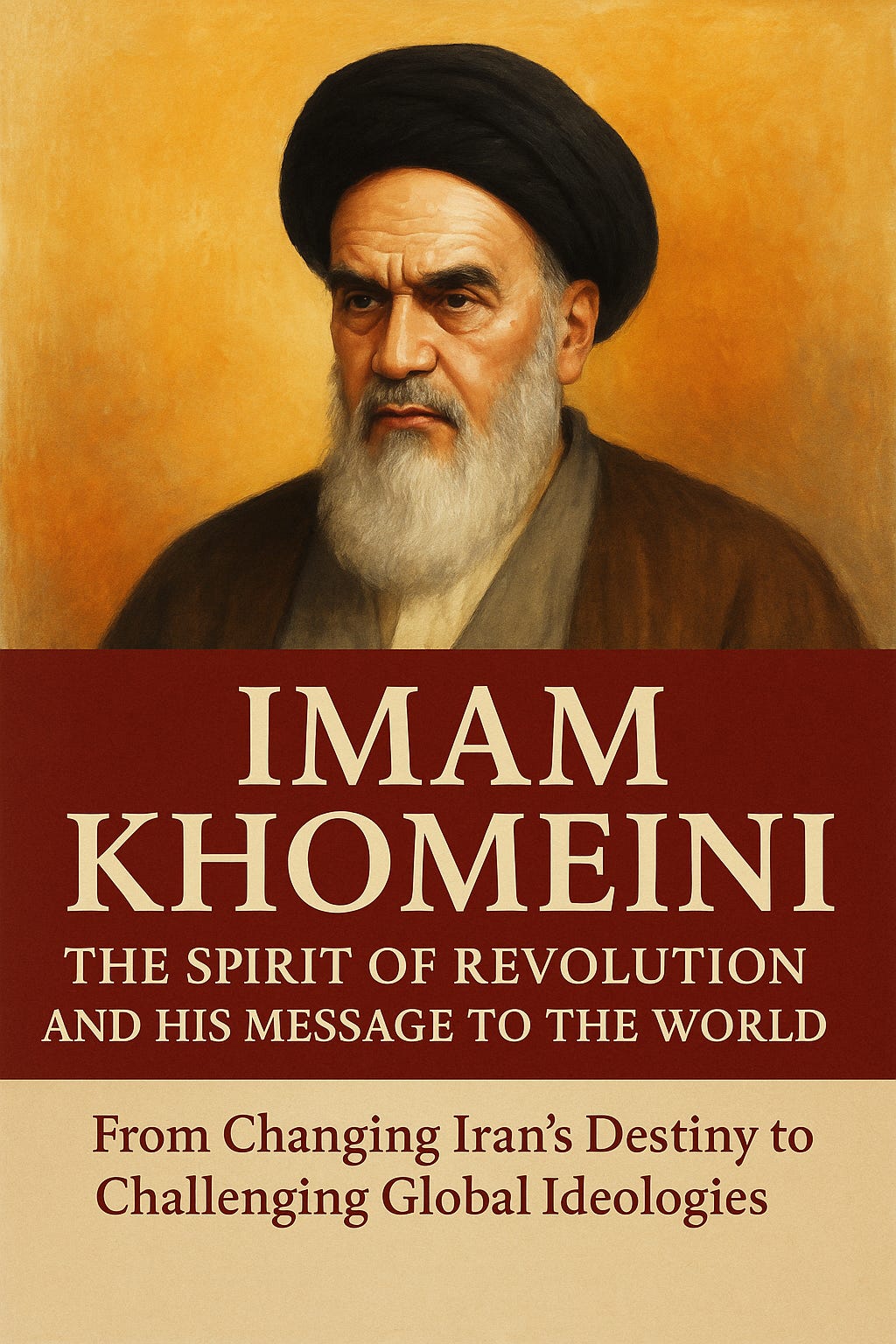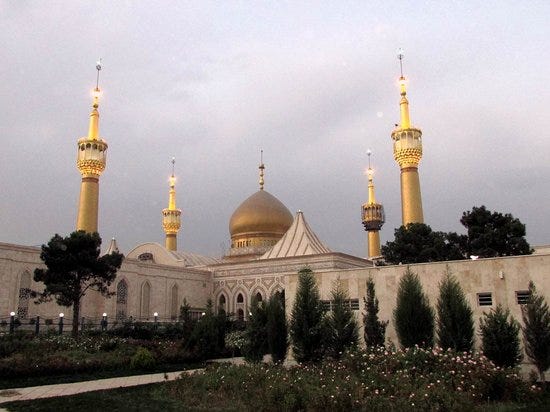Imam Khomeini: The Spirit of Revolution and His Message to the World
From Changing Iran’s Destiny to Challenging Global Ideologies
A Revolutionary Life Rooted in Faith
Born in 1902 in Iran, Imam Ruhollah Khomeini emerged as a transformative and uncompromising voice of faith and resistance. His leadership of the Islamic Revolution in 1979 did more than end 2,500 years of monarchy in Iran; it initiated a spiritual awakening that challenged global ideologies and redefined political struggle through religious values.
Martyr Murtada Mutahhari described Imam Khomeini as the "extract and digest of faith," highlighting his profound spirituality and prophetic vision. Imam Khomeini foresaw the collapse of Communism and emphasised the spiritual vacuum in both Eastern and Western ideologies. His unwavering trust in God became a source of inspiration that mobilised millions, uniting Iranians of all backgrounds under a singular vision of independence, dignity, and Islamic governance.
A Spiritual and Political Awakening
Imam Khomeini's revolution was more than political upheaval; it was a movement for moral revival. Concepts like justice, dignity, and independence took on renewed meaning. As Bishop Capuche observed, Iran's victory over global powers stemmed from Imam Khomeini's leadership and the people’s deep faith. It marked a shift from disbelief to monotheism, from despair to hope.
The revolution's impact was recognised globally. Pope John Paul II acknowledged Imam Khomeini's significance, while millions mourned his death in 1989. Over 10 million attended his funeral, underlining his enduring connection to the masses. As Bishop Capuche put it, Khomeini was "the father of the world's weak."
The Final Days of a Visionary Leader
On Tuesday, 22 May 1989, the nation was shaken by the news of the Imam’s illness. Emergency surgery was performed due to internal bleeding, prompting nationwide prayers. On 2 June, growing concern gripped Iran. Then, on 3 June, at 7am, state radio solemnly announced:
“To God we belong and to Him we return.
The holy spirit of Imam Khomeini has gone to meet his Creator."
Grief engulfed Iran. Cities draped in black, cries echoed through the streets, and Hosseiniyah Jamaran became a center of mourning. On 5 June, over 10 million people gathered to bid farewell to their beloved leader. He was laid to rest among the martyrs of the revolution, cementing his role as a timeless symbol of faith and resistance.
The Letter to Gorbachev: A Call to Spiritual Renewal
One of Imam Khomeini's most remarkable global messages was his open letter to Mikhail Gorbachev in January 1989. It was not merely a political critique but a profound spiritual invitation. Recognising Gorbachev's reform efforts, Imam Khomeini urged him to go further by acknowledging the failure of materialist ideologies and the need to rediscover God.
He warned against turning to Western capitalism, asserting that both Communism and capitalism suffer from the same spiritual deficiencies. Imam Khomeini predicted the collapse of Marxism, calling it a relic destined for the museums of history. He stressed that the real crisis was the absence of belief in the divine.
To illuminate a different path, Imam Khomeini encouraged Soviet scholars to study Islamic philosophy and mysticism through figures like al-Farabi, Avicenna, Suhrawardi, and Mulla Sadra. He explained the difference between materialist and theistic worldviews, emphasising the Islamic understanding of knowledge, reason, and the unseen.
His message concluded with an invitation to peace and mutual understanding, offering the Islamic Republic of Iran as a spiritual resource to fill the moral void left by collapsing ideologies.
The Palestinian Cause: An Islamic Imperative
Central to Imam Khomeini’s vision was unwavering support for Palestine. He exposed the Shah's covert ties with Israel and permitted the use of religious funds to support Palestinian fighters—a groundbreaking fatwa.
When the al-Aqsa mosque was set ablaze, Imam Khomeini insisted the site remain unrestored, symbolising ongoing injustice and rallying Muslims against occupation. He condemned those who used the tragedy for political gain and insisted that real liberation must be rooted in Islamic unity and ideology, not nationalism or foreign ideologies.
Imam Khomeini also criticised Muslim leaders who compromised with imperial powers. He encouraged people to rise when governments failed to represent Islamic values. His words and actions laid the foundation for continued resistance against Zionist oppression, making the Palestinian cause a key part of his enduring legacy.
A Lasting Legacy
Imam Khomeini's life transcended Iran’s borders. His revolution was not only about national sovereignty but also about spiritual independence. He stood against materialism, imperialism, and tyranny, offering instead a return to divine guidance.
His historic letter to Gorbachev, his leadership in the Islamic Revolution, and his passionate defence of Palestine remain powerful reminders of the role faith can play in transforming societies. In life and death, Imam Khomeini became a symbol of truth, justice, and resistance for millions around the world.
His legacy continues to illuminate the path for those who seek to uphold faith, unity, and moral courage in an age of global confusion.
Reference: The Official Website of Imam Khomeini



